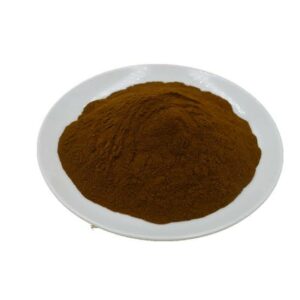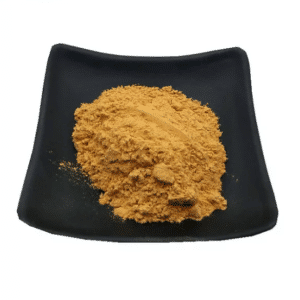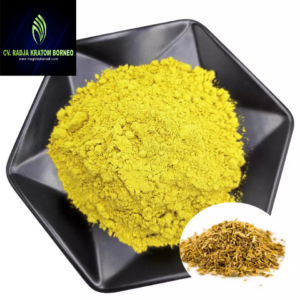It is an ancient medicinal herb Ashwagandha is one of the most important herbs in Ayurveda, a form of alternative medicine based on Indian natural healing principles. It has been used for over 3,000 years to relieve stress, increase energy levels, and improve concentration Ashwagandha is Sanskrit for the smell of a horse, which refers to its unique smell and ability to increase strength. Its botanical name is Withania somnifera, and it is also known by several other names, including Indian ginseng and winter cherry. The ashwagandha plant is a small shrub with yellow flowers that is native to India and North Africa. Extracts or powders from the roots or leaves of the plant are used to treat a variety of conditions. Many of its health benefits are attributed to its high concentration of withanolides, which have been shown to fight inflammation and tumor growth.
▪︎Improve thyroid function
One of the main benefits of ashwagandha is its ability to stimulate the thyroid and help it work optimally. Even better, ashwagandha is known to be effective for both overactive and underactive thyroid disorders. A study published in the Journal of Alternative and Complementary Medicine showed that ashwagandha was successful in normalizing the thyroid in hypothyroidism patients (Sharma et. al, 2018.
▪︎Effectively deal with stress and anxiety
This is the most famous benefit of ashwagandha, it helps you manage cortisol and keeps you calm throughout the day. According to a 2012 study published in the Indian Journal of Medicine, ashwagandha has been shown to “increase a person’s resistance to the effects of stress”, helping you stay calm in high-pressure environments (Kapoor et. al, 2012).
▪︎Detoxify the body
Ashwagandha has several anti-tumor properties. It can also protect the body from infection due to its antioxidant and detoxifying properties.
▪︎Improve memory and brain cell function
The stressors in our lives harm our bodies and damage our nervous system over time, so having ashwagandha as a natural stress reliever is definitely beneficial. But what’s more, the powerful detoxifying enzymes in ashwagandha help stop free radicals, with this comes memory support—ashwagandha has been shown to help improve memory and cognitive function in adults (Bose et. al, 2017).
▪︎Stimulate the immune system
As an adaptogen, ashwagandha can help reduce inflammation in your body and help your immune system work properly. Not only does it increase the white blood cell count, but research shows that ashwagandha can increase the production of immunoglobulins. Immunoglobulins are disease-fighting antibodies in your immune system, and ashwagandha helps your body naturally develop more antibodies to support your health.
▪︎Lowering blood sugar levels
In several studies, ashwagandha has been shown to lower blood sugar levels. One test-tube study found that it increased insulin secretion and increased insulin sensitivity in muscle cells Also, several human studies have suggested that it can reduce blood sugar levels in healthy people and those with diabetes. In addition, in a 4-week study in people with schizophrenia, those treated with ashwagandha had an average reduction in fasting blood sugar levels of 13.5 mg/dL, compared with 4.5 mg/dL in those receiving a placebo. What’s more, in a small study in 6 people with type 2 diabetes, supplementation with ashwagandha for 30 days lowered blood sugar levels.
▪︎Has anticancer properties
Research has found that the withaferin compound in ashwagandha helps induce apoptosis, which is programmed cancer cell death and can also inhibit the growth of new cancer cells. In one study, mice with ovarian tumors treated with withaferin alone or in combination with anti-cancer drugs showed a 70-80% reduction in tumor growth. This treatment also prevents the spread of cancer to other organs.
▪︎Can reduce cortisol levels
Cortisol is known as the stress hormone because your adrenal glands release it in response to stress, as well as when your blood sugar levels are too low. Unfortunately, in some cases, cortisol levels can be chronically elevated, which can lead to high blood sugar levels and increased belly fat storage. Research has shown that ashwagandha can help reduce cortisol levels In one study of adults experiencing chronic stress, those given ashwagandha supplements experienced significantly greater reductions in cortisol, compared to a control group. Those taking the highest dose experienced a 30% reduction.







